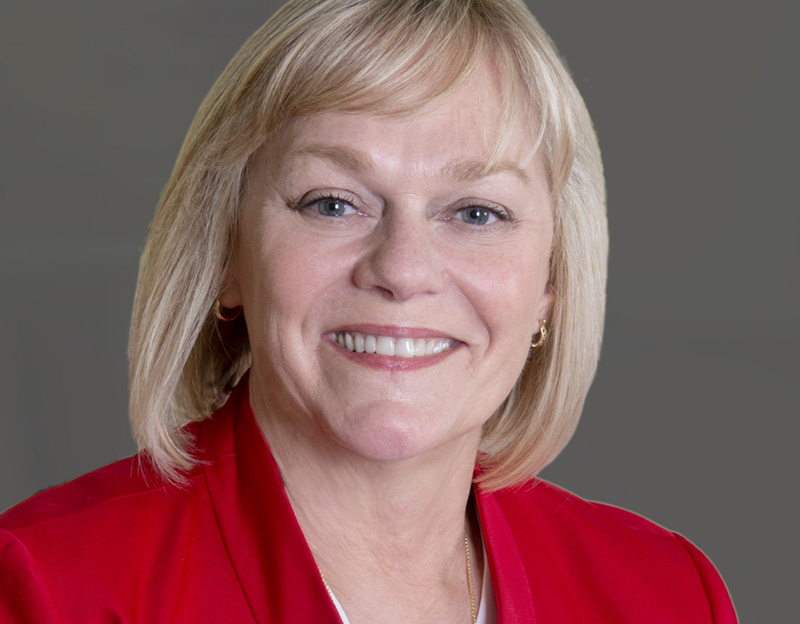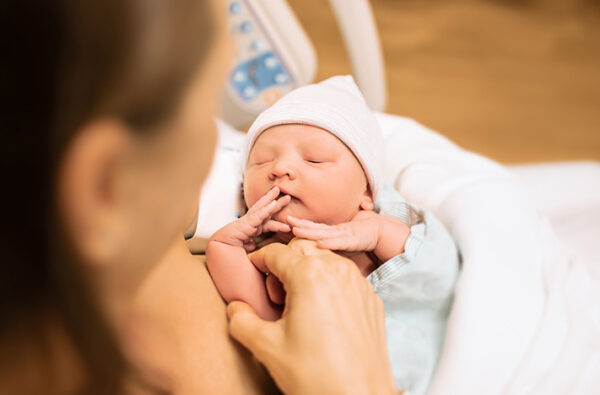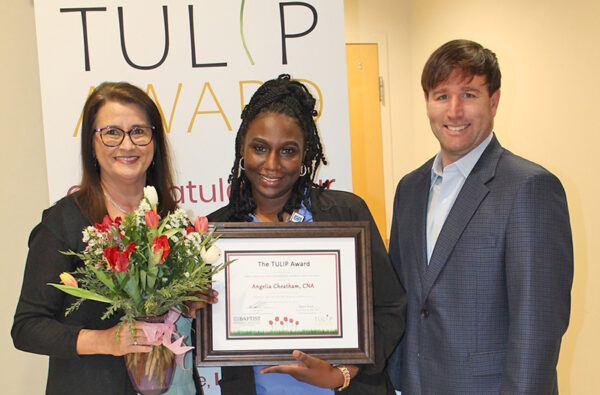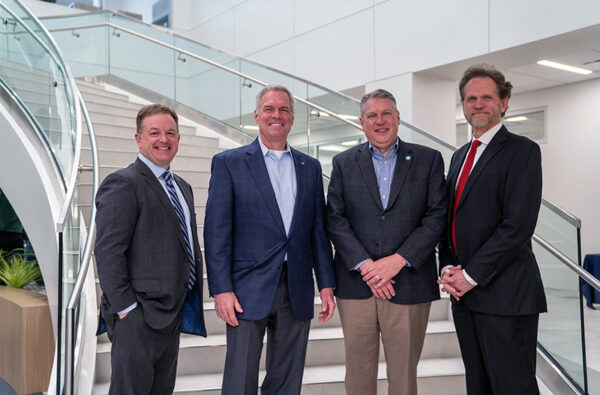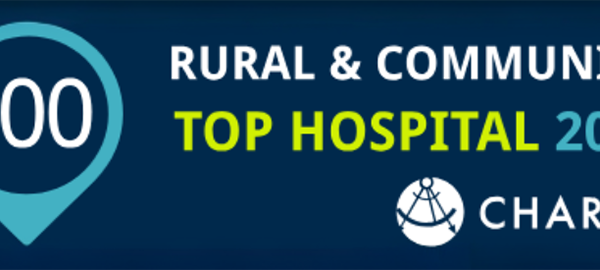The Baptist Clinical Research Institute (BCRI) makes it possible for area patients to receive innovative care when they take part in clinical trials. Their work is helping to advance knowledge and provide more answers for patients.
We talked with Maggie DeBon, Ph.D., executive director for the BCRI, about the research institute’s goals and their current and future clinical trials that will help save lives.
What are the goals of the Baptist Clinical Research Institute?
The vision for the research institute is to enable our patients and care providers to see that research is part of the health care continuum.
Clinical research is a treatment option – either alone, or often, in conjunction with the current gold standard. Today’s research is tomorrow’s standard of care, or as Dr. Raymond U. Osarogiagbon, chief scientist and director of the Baptist Cancer Center’s Multidisciplinary Thoracic Oncology Program, likes to say, “Tomorrow’s treatment today!”
Along with this vision, the BCRI provides the support and infrastructure for physicians, nurses and other medical providers to conduct research at Baptist.
Lastly, a goal of the BCRI is to grow the Baptist name in the research space. We are the only NCORP (NCI Community Oncology Research Program) site in this region, and we’re designated as a site for minority and underserved populations. This map offers an overview of all NCORP sites.
NCORP is a network funded by the National Cancer Institute (NCI) to bring clinical trials to people in their own communities. Our page on NCI’s website lists all of our affiliate locations within Baptist in addition to our primary location at the Baptist Cancer Center: Baptist Memorial Health Care/Mid-South Minority Underserved NCORP.
In the future, I’d like to see the BCRI expand into rheumatology research, build on our existing endocrine research and grow our oncology trials, specifically to build a Phase I Program.
What research has the BCRI been involved with recently?
The BCRI has two research arms: Oncology and Multispecialty (MS). MS covers all research except for oncology. Director of Clinical Operations Paul Koros leads MS research, and Tracy Stewart serves as assistant director for oncology research.
Our current MS trials address COVID-19, acute coronary syndrome (heart attacks, coronary blockages), strokes, a blood thinner reversal agent, an emergency stent graft (for when a coronary vessel is perforated), a diabetic retinopathy camera (reads 220 degrees at the back of the eye and uses AI to read the image in seconds), sickle cell disease, diabetes, hypothyroidism, wound-healing mesh and nasal polyps.
On the oncology side, we are particularly focused on immunotherapy, which is at the forefront of cancer treatment and research. With lung cancer, we know immunotherapy extends lives and may even cure a small number of people with stage IV cancer.
Now we are investigating the addition of immunotherapy to earlier stage lung cancer with the goal of curing more people by adding it to our existing treatments, such as radiation and surgery.
At Baptist, we work closely with many different national cooperative research groups for oncology to bring these studies to our patients. SWOG 1914, Alliance Foundation Trial-46, ECOG-ACRIN 5181 and NRG LU005 are all examples of clinical trials that test the addition of immunotherapy to existing potential curative therapy with the aim of curing even more patients with early-stage lung cancer.
Will you tell us about the COVID-19 studies the BCRI has been involved with that are planned, completed or in progress?
We’re conducting several inpatient and outpatient studies. Some of our research work has included monoclonal antibodies and antibiotics. We also enrolled more than 800 patients within three months for a Mayo Clinic study evaluating convalescent plasma for the treatment of COVID.
The BCRI currently has two additional COVID studies in the pipeline, and we’re interested in looking at “long-haulers,” those who suffer the long-term effects of COVID-19.
Could you tell us about BCRI’s involvement with the Mid-South Miracle initiative to reduce lung cancer deaths?
Mid-South Miracle is the vision of Dr. Osarogiagbon. The clinic side of the program is overseen by Nick Faris, director of Thoracic Oncology at Baptist Cancer Center.
The BCRI handles the research piece, the data (along with other groups), data modeling and analysis of the 5+2 components of the project: clinical trials, smoking cessation, low-dose CT screening, incidental lung cancer nodule screening, multidisciplinary care, high-quality surgery and customizable diagnosis.
We crunch the numbers to determine if we’re meeting the mark of reducing lung cancer mortality within 10 years, at a rate 25% more than our current trajectory. Our research staff that’s funded by Dr. Osarogiagbon’s NCI grant addresses the pathology and surgical quality components of the Mid-South Miracle initiative. We are also responsible for increasing enrollment of patients with lung cancer in clinical trials.
What would you say to someone thinking about pursuing a career in clinical research?
Come on! There are so many opportunities and so many different jobs that touch research, from direct patient care to regulatory work, quality assurance, data management, grantsmanship, budgets and contracts.
If you’re inquisitive and want to be a part of offering investigative treatments or devices to people suffering, Baptist research is the place for you.
Is there anything you’d like to add?
I envision the BCRI continuing to grow in providing options to our patients, especially those who have exhausted current available treatments. We’re grateful for our patients and their willingness, as well as the support of Baptist executive leadership, our physicians and committed research staff. They all make it happen!

